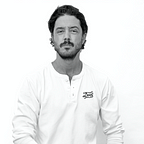The 3 Possible Outcomes for Any Artist
Outcome #1: The Hemingway
--
(Also known as The Dickens, The Picasso, The Warhol, The Mailer and even The Shakespeare)
Characteristics: Fame, fortune, productivity and legacy. You will either go out with the blast of a shot-gun or asking the friends at your lavish dinner party to drink to you as you collapse and die.
During the 20th century, the popular artist could often enjoy a long-winded celebrity status. This was mainly because the majority of artists that rose to the top of the scene were actually worth something, they had something valuable to say. Today, ‘artists’ rise to the top and sink to the dregs just days later. So, you may enjoy but a blip of Hemingwayanian fame, like James Frey or Mr. Brainwash, or, you may be the real deal and be posing for photos beside your 60lb marlin for a clamouring group of fans forty years after your rocket to celebrity. It’s hard to tell. It really depends on what you have to say, if anything.
Thanks to your fame, you will probably speed from lover to lover, breaking hearts and breaking dreams, so long as they are not your own. Everyone you meet will want a piece and you will probably mistake that for affection or, infinitely worse, love. Your growing fortune will allow you to create the sort of art you want to create and not have to worry about what people will really think, but, deep down, you know they will like it simply because they like you.
Dickens was considered a literary colossus while he lived. He made so much money that he was able to buy all the glorious homes he walked past as a child. Picasso had lovers more than forty years his junior and amassed what has been referred to as an ‘immense fortune’, even collecting chateaus in France. Warhol cavorted with celebrities, sometimes painting them for monumental sums of money, and even groomed a retinue of bohemian eccentrics from within the walls of his Manhattan Factory. He was the subject of media frenzy and the target of attempted murders.
One day, as The Hemingway, you will realize that only you, your loved ones and handful of people actually respected your work the way you meant it and the rest were just tittering fan-boys. That, and your inability to love your lovers and create your art with such clarity as before will contribute to your growing frustrations in life. This will lead to self-torture, exhaustion, anxiety and the need for more ‘real’ artistic acknowledgment. When this does not come, you will decide you have had enough. The Hemingway will go out with a bang.
Outcome #2: The Van Gogh
(Also known as The Poe, The El Greco, The Kafka)
Characteristics: Uninterrupted proliferation. Poverty, depression and posthumous fame. Chances are slim but you’ll have one hell of an estate for your children to squabble over.
While this actually sounds less-desirable than The Hemingway, it’s actually much harder to achieve. Especially these days, when, after you are dead, the world races on at an ever-quickening pace towards their smartphones and celebrity blogs — away form the past and those who lived there. You, and everyone else on the planet right now (artist or not) stand the greatest-ever chance of being forgotten.
There is something tragic about The Van Gogh, yet, at the same time, there is something very special. Their work can be seen as truer or more honest because things like prominence, wealth and the need to critically eclipse your previous work with your latest work does not effect you. There is something truly liberating about your obscurity. Something genuine about nothingness. Hemingway, in his 1954 Nobel Prize acceptance speech, wrote about the working writer: “He grows in public stature as he sheds his loneliness and often his work deteriorates.”
As the Van Gogh, you will be lonely. You will find lovers who pity you and prostitutes whom you struggle to pay for. Your parent’s will surely hate you and your art. They won’t understand you, mainly because, nobody else understands you. More importantly, society just won’t understand what makes you different. El Greco’s work was called ridiculous and worthy of scorn. In 1849, Edgar Allen Poe died from rabies, suicide or heart disease (depending on which record you pull up) and arguably his greatest work ‘The Raven’ sold for pennies during his lifetime. And Kafka? Well, he died in 1924 from starvation.
Vincent Van Gogh. Edgar Allen Poe. Franz Kafka. These names are now regarded as visionaries within their disciplines. True artists. Today, the museums erected in recognition of their work would dwarf any hovel they inhabited during their toil and struggle. The Van Gogh is tortured, tired and hungry for acknowledgment and bread. For The Van Gogh’s sake, I hope there is an afterlife where he can look down and bask in his posthumous fame, but I doubt it.
Outcome #3: The Thomas Buster-Johnson
Who the fuck is Thomas Buster-Johnson?
